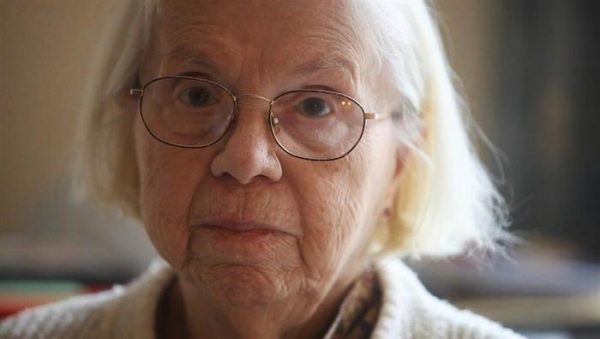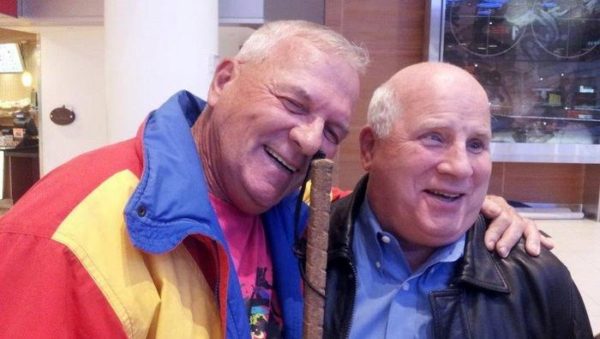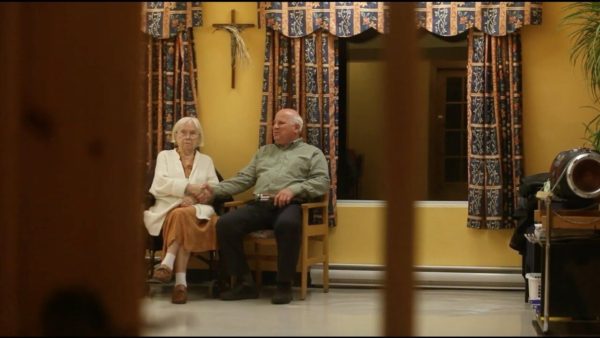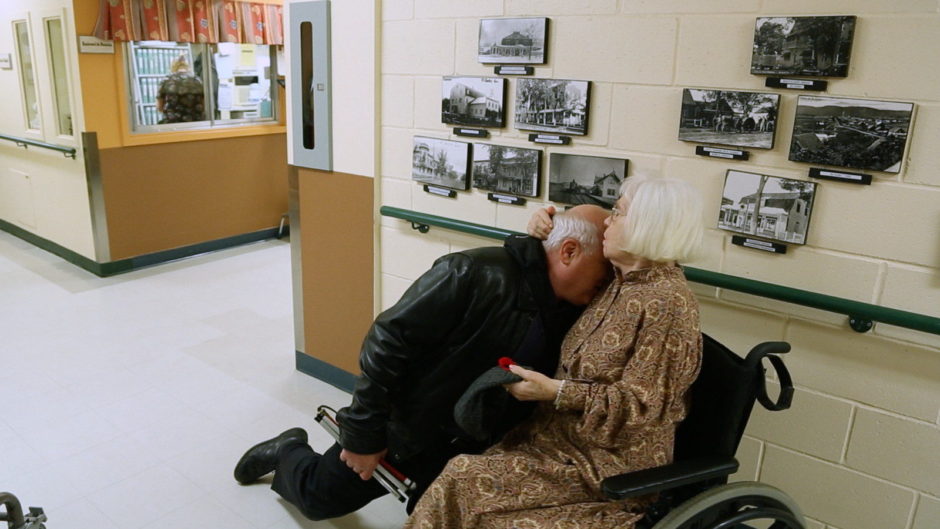Alon and Shaul Schwarz’s intriguing documentary, Aida’s Secrets, plumbs the depths of a family’s convoluted history, but leaves a viewer asking more questions than it answers.
The film, set in Israel, Germany and Canada, opens in Toronto on January 12 at the Hot Docs Ted Rogers Cinema. It revolves around a mother and her two estranged adult sons, Izak and Shep. Izak, a gardener in an Israeli moshav, was raised by foster parents. Relatively late in life, he discovered that his biological mother, Aida, and his younger brother, Shep, both live in Canada.

Aida visited Izak in Israel when he was a boy, but never identified herself as his mother. Izak was aware that his father’s name was Grisha, but that was really the extent of his knowledge about him. Shep, having been brought up by a stepmother, never actually knew Aida. Nor did he know she was only a few hours away by airplane from his home in Winnipeg.
So when Izak found out that Shep was alive and well, he and family flew to Canada for a long overdue reunion. “My little brother, my little brother,” Izak exclaimed after they met at the airport. As they talked, they realized they had no idea why Aida had separated them.
Izak was born in Bergen-Belsen, the German concentration camp liberated by Allied forces in the spring of 1945. Shep was born a few years later. Aida gave Izak up for adoption in Israel when he was two-and-a-half years old, while Shep remained with Grisha and his second wife. Now, decades later, Shep wonders how Aida could have banished him from her mind so completely.
The filmmakers have a personal stake in this fascinating story because Izak is their uncle. They treat it as a mystery to be unravelled and fully understood. With the assistance of an investigator, the pieces in this complex puzzle come together gradually, at least to a degree.

Aida’s Secrets reaches its climax about midway through when the brothers fly to Montreal to meet their mother, who’s living in an assisted care facility. Aida, now 89, is glad to see them, but oddly enough, she has a distant look in her eyes, as if she’s unable to reconnect with them. Shep, who’s visually impaired, is overjoyed. “My mommy,” he chortles. “My little boy,” she says.
Later, as she navigates a path with her walker, Aida says, “I just can’t believe it. It’s my day.”
As the film continues to unfold, we learn that Grisha was wheeler-dealer in Bergen-Belsen, a black marketeer, and that while Aida has clear memories of Izak, she can hardly remember Shep.
Until the end, Aida remains a remote and enigmatic figure. We’re told she was 14 when Germany invaded Poland in 1939, setting off World War II, but the rest of her biography is pretty much of a blank. Aida went to Germany to work as a domestic, but details are not forthcoming. After the war, she turned up in Bergen-Belsen, but why did she go there?
It appears that Aida wanted to join Izak in Israel, but was turned away by the government as a Christian. A Christian? Schwarz doesn’t bother to explain this issue, this elephant in the room, and Izak and Shep stay resolutely clear of it.

What subsequently emerges is that Grisha was a philanderer, that he left Aida and married a German nurse who converted to Judaism, that the boys have different biological fathers, and that Aida, unmarried, gave birth to a third son in Canada in the late 1940s.
Claiming she doesn’t recall giving birth to another child, Aida will only say she did her best for her children. Whether she’s sincere is debatable, but few can doubt she took many secrets to her grave, leaving Aida as a very mysterious figure.
